The Ministry of Environment yesterday said it is planning to add 357 more perfluorinated and polyfluorinated alkyl substances (PFAS) to its list of banned toxic chemicals — which would only be allowed for research, testing and educational uses — by the end of the month.
It added it also plans to announce a ban on the use of nonylphenol and nonylphenol polyethylene glycol ether as industrial detergents by the end of the month.
PFAS are a class of thousands of synthetic chemicals, which have the qualities of making products resistant against water, stains and heat. These chemicals are commonly used in a wide variety of products, including food packaging, furniture and water-resistant clothing.
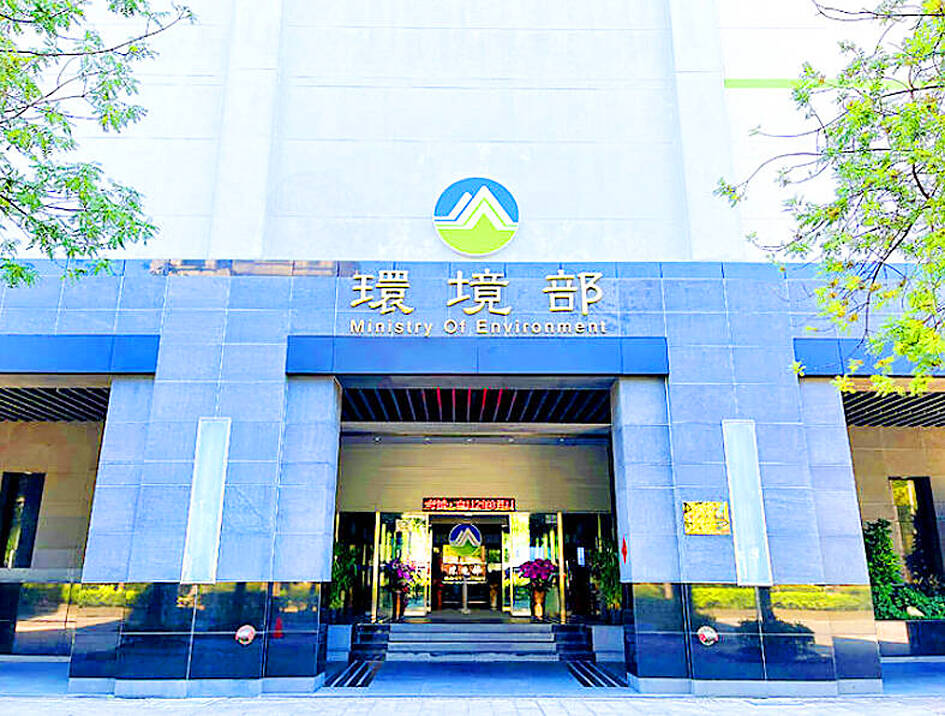
Photo: Chen Chia-yi, Taipei Times
However, as there are some studies suggesting that PFAS exposure could be associated with increased risk of cancer, more countries are banning their use.
There are 151 types of PFAS that are banned by the Ministry of Environment in the nation.
Head of the ministry’s Chemicals Administration’s Evaluation Management Division Lin Song-chin (林松瑾) yesterday said that perfluorooctane sulfonic acid (PFOS), perfluorooctanesulfonyl fluoride, perfluorooctanoic acid (PFOA), perfluorohexane sulfonic acid (PFHxS) and 147 kinds of PFHxS and its salts and related compounds are banned in Taiwan.
In accordance with the UN Stockholm Convention, the ministry plans to announce the prohibition of toxic chemical substances PFOS and PFOA, and their salts and related compounds — 357 types of PFAS — he said.
Currently, only the main substances of PFOS and PFOA are banned, so the next step is to also ban their salts and related compounds, he said.
After the 357 types of PFAS are added to the list of toxic chemical substances, the manufacturing, import, sale, and use would all be prohibited, he said.
There are seven local agencies that are using these PFAS, all for research and testing, and they could continue using them after submitting an application, he said.
The ministry also plans to limit the use of nonylphenol and nonylphenol polyethylene glycol ether, which are surfactants used as detergents and emulsifiers in many industries, Lin said.
Nonylphenol is classified as an environmental hormone, known to cause disorders in the endocrine system, and has been banned in household detergents in Taiwan since 2008, he said.
In accordance with the global trend of placing tighter control on such substances, nonylphenol and nonylphenol polyethylene glycol ether would be banned in industrial detergents, and the allowable concentration level would be reduced from 5 percent to 0.1 percent, he added.
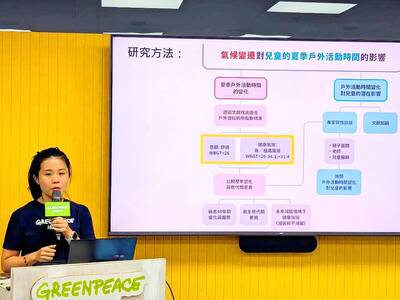
The government should improve children’s outdoor spaces and accelerate carbon reduction programs, as the risk of heat-related injury due to high summer temperatures rises each year, Greenpeace told a news conference yesterday. Greenpeace examined summer temperatures in Taipei, New Taipei City, Taoyuan, Hsinchu City, Taichung, Tainan and Kaohsiung to determine the effects of high temperatures and climate change on children’s outdoor activities, citing data garnered by China Medical University, which defines a wet-bulb globe temperature (WBGT) of 29°C or higher as posing the risk of heat-related injury. According to the Central Weather Administration, WBGT, commonly referred to as the heat index, estimates
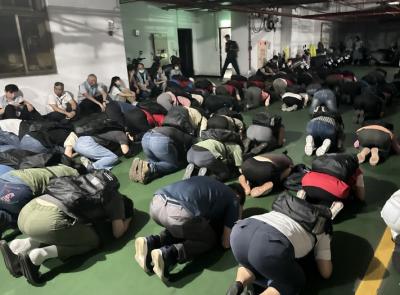
Taipei and other northern cities are to host air-raid drills from 1:30pm to 2pm tomorrow as part of urban resilience drills held alongside the Han Kuang exercises, Taiwan’s largest annual military exercises. Taipei, New Taipei City, Keelung, Taoyuan, Yilan County, Hsinchu City and Hsinchu County are to hold the annual Wanan air defense exercise tomorrow, following similar drills held in central and southern Taiwan yesterday and today respectively. The Taipei Mass Rapid Transit (MRT) and Maokong Gondola are to run as usual, although stations and passenger parking lots would have an “entry only, no exit” policy once air raid sirens sound, Taipei
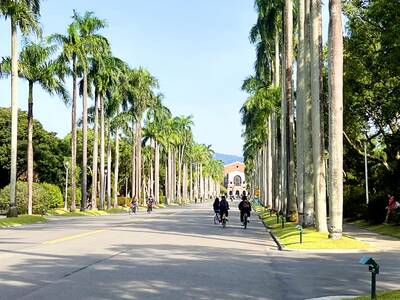
Taipei placed 14th in the Quacquarelli Symonds (QS) Best Student Cities 2026 list, its highest ever, according to results released yesterday. With an overall score of 89.1, the city climbed 12 places from the previous year, surpassing its previous best ranking of 17th in 2019. Taipei is “one of Asia’s leading higher-education hubs,” with strong employer activity scores and students “enjoying their experience of the city and often keen to stay after graduation,” a QS staff writer said. In addition to Taipei, Hsinchu (71st), Tainan (92nd), Taichung (113th) and Taoyuan (130th) also made QS’ list of the top 150 student cities. Hsinchu showed the
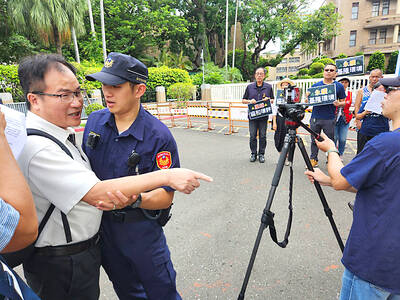
Environmental groups yesterday filed an appeal with the Executive Yuan, seeking to revoke the environmental impact assessment (EIA) conditionally approved in February for the Hsieh-ho Power Plant’s planned fourth liquefied natural gas (LNG) receiving station off the coast of Keelung. The appeal was filed jointly by the Protect Waimushan Seashore Action Group, the Wild at Heart Legal Defense Association and the Keelung City Taiwan Head Cultural Association, which together held a news conference outside the Executive Yuan in Taipei. Explaining the reasons for the appeal, Wang Hsing-chih (王醒之) of the Protect Waimushan Seashore Action Group said that the EIA failed to address